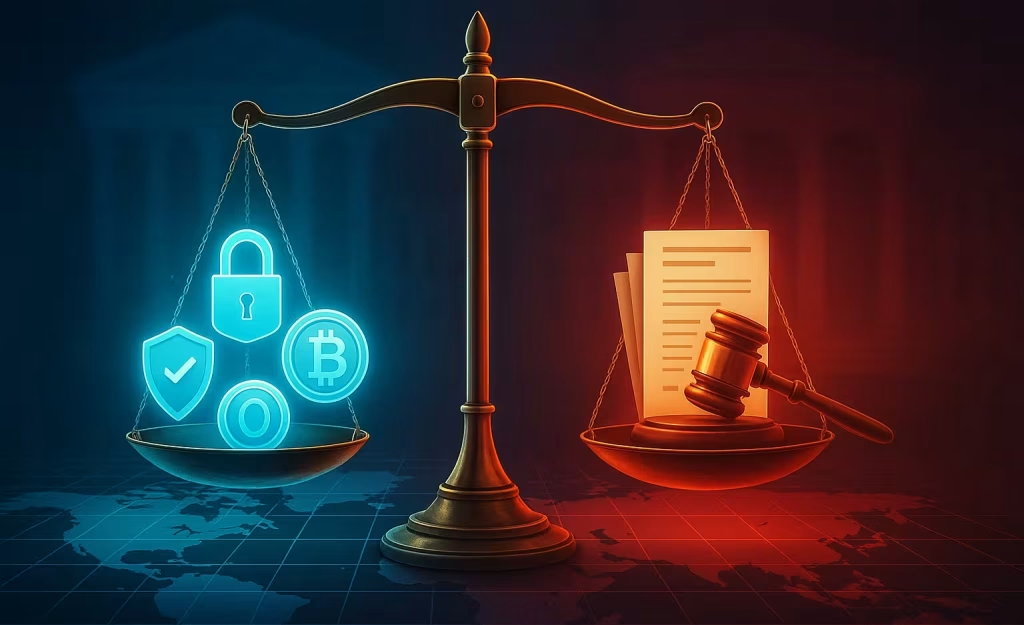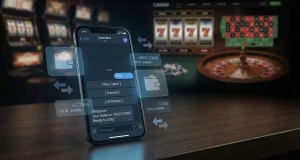No-KYC Casinos: Freedom or Free-For-All? What the Shift Means for You

Imagine being able to gamble online without ever submitting your ID, bank statement, or proof of address. No forms. No waiting. No middlemen. Just pure, instant access. That’s the reality of No-KYC casinos — platforms that skip the traditional “Know Your Customer” process entirely.
For some players, this feels like the ultimate win for privacy and freedom. For others, it’s a red flag — a digital wild west where anything goes.
The debate is heating up fast as these anonymous gambling sites spread across the crypto scene. But are they truly revolutionizing online gaming, or are they quietly eroding the safeguards that protect players?
Let’s break down what No-KYC casinos really are, why they’re exploding in popularity, and what this shift means for the future of online gambling.
What Are No-KYC Casinos?
In the traditional online casino world, KYC — or “Know Your Customer” — is standard procedure. Every player must verify their identity by uploading documents like a driver’s license, utility bill, or bank statement. It’s all about compliance: stopping fraud, preventing money laundering, and keeping minors out.
But No-KYC casinos flip that model on its head. These platforms let you play without submitting any personal documentation. No ID. No selfies. No waiting on approval emails. It’s fast, frictionless, and almost completely anonymous.
So, what exactly defines a No-KYC casino?
Key Traits of No-KYC Casinos
- Anonymous Registration – Most require only an email or crypto wallet connection. No full name, address, or ID verification is needed.
- Crypto-Only Transactions – These casinos almost always use Bitcoin, Ethereum, or stablecoins for deposits and withdrawals, allowing for pseudonymous transfers.
- Offshore Licensing – Many operate under lightly regulated jurisdictions like Curaçao, Panama, or Anjouan, where KYC enforcement is minimal.
- Instant Play Access – Players can sign up and start gambling in under a minute — no lengthy verification delays.
- Privacy by Design – With no KYC database, there’s less risk of personal data leaks or identity theft.
How They Operate
Instead of linking your account to your real-world identity, No-KYC casinos connect your gameplay directly to your crypto wallet address.
That means your wallet effectively becomes your casino identity. When you deposit crypto, the platform recognizes your wallet as the source of funds — and when you withdraw, it sends your winnings straight back to that address.
This decentralized structure eliminates traditional banking rails altogether. There’s no need for credit cards, wire transfers, or third-party payment processors that report to governments or banks.
However, this also means:
- No centralized verification if disputes occur.
- No automatic protection against fraud or self-exclusion failures.
- No guaranteed recourse if the casino shuts down or locks your balance.
Why They Exist
The push for No-KYC platforms isn’t random — it’s part of a larger shift in online privacy and cryptocurrency culture. Many players see identity-free gambling as a form of digital sovereignty — the right to control your own data and money without interference.
In essence, No-KYC casinos are the byproduct of two trends colliding:
- The global move toward data privacy and decentralization.
- The explosive rise of crypto-based finance and entertainment.
They’re not just casinos; they’re symbols of a growing rebellion against overregulation, bureaucracy, and the creeping loss of online anonymity.
Why No-KYC Casinos Are Gaining Popularity

The rise of No-KYC casinos isn’t just a fringe movement — it’s a full-blown response to the growing frustration with overregulation, data exposure, and delayed payouts. Players are tired of jumping through hoops just to enjoy a few hands of blackjack or a round of slots.
At their core, these platforms appeal to a powerful mix of privacy, speed, and autonomy — values that today’s online gamblers crave more than ever.
Top Reasons Players Are Flocking to No-KYC Casinos
- Privacy and Data Control: In an era where every website wants your name, address, and a selfie with your ID, No-KYC casinos offer something radical: silence. You decide what to share — and in most cases, that’s nothing at all. For crypto-native users, anonymity isn’t about hiding; it’s about protecting identity in a world where data breaches and government overreach feel routine.
- Instant Access and Withdrawals: Traditional casinos can make you wait days for approval or withdrawals. No-KYC platforms skip the bureaucracy entirely. You can sign up, deposit crypto, and start playing within minutes. Many withdrawals hit your wallet almost instantly, especially with Lightning Network or stablecoin payouts.
- Crypto Integration: The explosion of Bitcoin and Ethereum gambling sites paved the way for KYC-free ecosystems. Players can fund their accounts with crypto, avoid banks, and maintain pseudonymity while still enjoying provably fair gaming. It’s fast, borderless, and private — exactly what crypto users expect.
- Bypassing Geographic Restrictions: For players in countries with strict or unclear gambling laws, No-KYC casinos are often the only viable option. They operate globally, allowing access where traditional platforms block players based on IP or nationality.
- Rebellion Against Traditional Systems: There’s a growing anti-establishment sentiment in the online gaming space — the same energy that fueled decentralized finance (DeFi). Many users see No-KYC gambling as a form of digital self-sovereignty, rejecting the notion that entertainment requires surveillance.
This shift isn’t just about convenience — it’s philosophical. No-KYC casinos align with the broader Web3 and decentralization movement, where users control their own data, funds, and identity.
They represent a kind of digital frontier spirit — one that values independence over oversight. For many players, especially in the crypto community, these casinos symbolize freedom of choice in an increasingly controlled digital economy.
The Pros: Freedom, Privacy, and Control
For many players, No-KYC casinos feel like a breath of fresh air in an industry that’s become bogged down by red tape and endless verification. They bring back the raw simplicity of online gambling — just you, your wallet, and the game.
These platforms have tapped into something that’s been missing for years: player autonomy. Instead of being treated like a potential risk or liability, you’re finally in control of how, when, and where you play.
Biggest Advantages of No-KYC Casinos
- True Anonymity: You don’t have to hand over your identity, financial history, or proof of income to enjoy a few rounds of roulette. For players in privacy-conscious circles, that’s a massive win. Your gameplay and personal life stay completely separate.
- Instant Access and Withdrawals: Say goodbye to waiting days for your ID to “verify.” No-KYC casinos let you start playing within minutes — and many process withdrawals almost instantly, especially when using Bitcoin or stablecoins. This is especially appealing to high-frequency players who value speed over anything else.
- Global Accessibility: With no KYC barriers or regional restrictions, players from anywhere can join. You don’t have to worry about your country being blacklisted or your payment method being declined.
- Reduced Data Risk: Because No-KYC casinos don’t collect or store personal data, there’s less risk of a major breach exposing your private information. If the site gets hacked, there’s nothing for attackers to steal.
- Crypto-Friendly Convenience: These casinos thrive on blockchain technology. Deposits and payouts in Bitcoin, Ethereum, or USDT are direct, secure, and transparent. Many also offer provably fair games, letting players verify that outcomes are truly random.
The Bigger Appeal
Beyond convenience, the real appeal of No-KYC casinos is psychological. Traditional casinos often feel like they’re watching your every move — tracking your activity, flagging your transactions, and requiring constant re-verification.
No-KYC platforms remove that friction entirely. They restore a sense of trust in the player, not just in the system. You’re free to play without explaining yourself — a rare luxury in today’s digital world.
That freedom, though, is a double-edged sword. It can empower responsible players… or enable reckless ones. But from the user’s perspective, it’s a refreshing return to control — gambling on your terms, not the casino’s.
The Cons: Risks Behind the Curtain
Freedom always comes with trade-offs — and No-KYC casinos are no exception.
For every player celebrating the end of ID uploads and paperwork, there’s another discovering the hard way that anonymity cuts both ways.
When there’s no verification, there’s also no oversight. You’re stepping into a world built on trust — but often, trust without accountability.
Hidden Dangers Players Should Know
- No Player Protection or Dispute Resolution: Licensed casinos with full KYC must follow strict payout and complaint procedures. No-KYC platforms, on the other hand, operate beyond those frameworks. If something goes wrong — your winnings disappear, or the site suddenly “suspends” your account — you often have no legal recourse. Once funds are gone, they’re gone.
- Unverified or Rigged Games: Without external auditing, some No-KYC casinos run uncertified software. This means game outcomes may not be truly random. Players who don’t verify the use of provably fair technology risk gambling on house-controlled algorithms with zero transparency.
- Money Laundering and Legal Exposure: Because No-KYC casinos can be used to move crypto anonymously, regulators view them as potential AML risks. In some jurisdictions, using or profiting from these sites could fall into a gray (or even illegal) area. Players should understand their local laws — ignorance doesn’t protect you if enforcement comes knocking.
- Underage and Problem Gambling Risks: With no verification barriers, minors and compulsive gamblers can easily gain access. KYC systems aren’t perfect, but they do serve as a basic safeguard that’s missing here entirely.
- Fly-by-Night Operators: The anonymity that protects players also protects shady operators. Some No-KYC casinos vanish overnight — taking deposits with them. Others change names or domains frequently, making it hard to track reputation or history.
Why These Risks Matter
When everything is frictionless, it’s easy to let your guard down. That’s exactly what bad actors count on.
The absence of regulation doesn’t automatically make a casino unsafe, but it shifts all responsibility to the player.
In short:
No-KYC means no safety net.
You’re gambling in a system where freedom replaces structure — and that can be both empowering and dangerous.
Smart players treat these platforms like high-volatility investments: fun, fast, and potentially rewarding… but not something to go “all-in” on without caution.
Regulatory Landscape: Where Do Authorities Stand?

When you step into the world of No-KYC casinos, you’re not just choosing a platform — you’re choosing a regulatory environment. And right now, that environment is patchy, evolving, and full of gray zones.
While major regulators insist on identity verification, No-KYC operators are floating around outside of that mainstream framework. Here’s how it all breaks down.
Current Regulatory Positions
- Major betting jurisdictions such as the UK Gambling Commission (UK), Malta Gaming Authority (MGA), and many U.S. states require full KYC checks as part of licensing.
- Offshore regulators — for example, jurisdictions like Curaçao eGaming or Costa Rica Gaming Control Board — have historically permitted looser verification. That environment has allowed many No-KYC casinos to spring up under lighter oversight.
- U.S. regulators operate under a state-by-state model. For a detailed state-by-state legal summary, you can visit our guide on U.S. online gambling laws at GamblingSite.com’s U.S. Laws Page.
- Across the board, regulators are increasingly focusing on anti-money laundering (AML) and responsible gambling safeguards. When KYC is missing, those risk controls weaken — raising red flags for regulators.
Key Regulator Concerns With No-KYC Casinos
Here are major issues that regulators are actively looking into:
- Money Laundering & Illicit Flows – Anonymous accounts make it easier to move money without trace, which spurs regulatory intervention.
- Underage Gambling & Problem Behaviour – Without verification, it’s harder to enforce age limits or self-exclusion programs.
- Fairness & Player Protection – If a casino isn’t audited or licensed under strict regulation, who ensures you get paid or games aren’t rigged?
- Jurisdiction & Licensing Gaps – Many No-KYC sites are licensed in low-oversight zones; regulators worry about accountability in those cases.
- Cross-border Compliance – Because players can join from almost anywhere, enforcing local laws (especially in the U.S.) becomes complex.
What’s Next? Emerging Patterns
- Some jurisdictions are adopting tiered KYC models: small deposits/withdrawals remain anonymous, but larger transactions trigger full verification.
- Regulators are pushing licensing frameworks that demand both player safety and privacy protection — meaning that No-KYC as a “zero verification” model may shrink or evolve.
- Legal enforcement is increasing against unlicensed offshore operators targeting players in regulated markets — players in some states may risk more than they think.
- On the tech front, expect developments in self-sovereign identity systems (blockchain-based ID verification) which may offer a compromise: verification without data exposure.
The Player’s Perspective: What This Shift Means for You
For everyday players, the No-KYC casino boom isn’t just another industry headline — it’s a fundamental change in how you interact with gambling platforms. It shifts power, responsibility, and risk directly into your hands.
On the surface, that sounds empowering — no gatekeepers, no waiting, no middlemen. But with that freedom comes one simple truth: you’re now your own regulator.
What This Shift Really Means for Players
- Trust Becomes Personal: In a world without enforced licensing standards, reputation is everything. You can’t rely on a government seal or oversight board — you have to do your own due diligence. Check for provably fair games, community reviews, and third-party audits before depositing a cent.
- You Manage Your Own Risk: Without KYC, there are no built-in spending limits or loss caps. If you’re not careful, it’s easy to overspend or chase losses. Responsible bankroll management isn’t just smart; it’s survival in anonymous gaming.
- Privacy Is a Double-Edged Sword: Keeping your data private is valuable, but anonymity also means no official support if something goes wrong. Always assume that once funds leave your crypto wallet, you alone are responsible for recovering them.
- Tax and Legal Ambiguity: Many players forget that anonymity doesn’t equal invisibility. Crypto transactions are still traceable, and winnings may be subject to taxes depending on where you live. Understanding your local regulations is essential.
- Security Is in Your Hands: Without centralized verification systems, your crypto wallet becomes your lifeline. Lose access, and your funds are gone. Protect it with hardware wallets, strong passwords, and 2FA — because no one’s resetting it for you.
The Modern Player Mindset
The players thriving in the No-KYC environment are the ones who take personal accountability seriously. They treat gambling like an investment with volatility — enjoyable, but risky.
The key is to balance freedom with discipline:
- Verify sites through independent reviews.
- Track your spending manually or with bankroll apps.
- Keep winnings secure in an offline wallet.
- Don’t assume anonymity shields you from laws or losses.
In short, the shift to No-KYC gambling means you’re no longer a customer playing within a regulated system — you’re the system. That can be thrilling… or costly, depending on how well you play the new rules.
Checklist: How to Play Safely on No-KYC Casinos
If you decide to explore the No-KYC world, treat it like stepping into uncharted territory. Preparation matters.
Here’s a quick safety checklist:
- ✅ Stick to casinos with visible licensing or public audits.
- ✅ Use provably fair games with transparent code or RNG validation.
- ✅ Test withdrawals with small amounts before committing larger sums.
- ✅ Keep a separate crypto wallet exclusively for gambling funds.
- ✅ Double-check website URLs — many scam clones impersonate legitimate casinos.
- ✅ Avoid sending funds from exchanges directly (use a personal wallet).
- ✅ Watch community reviews on Reddit, Bitcointalk, or Trustpilot.
Anonymity can be empowering — but only if you stay one step ahead of potential pitfalls.
Future Outlook: Is No-KYC the New Normal?

The rise of No-KYC casinos isn’t just a short-term fad — it’s part of a much bigger shift in how the online gambling world is redefining trust, privacy, and regulation.
We’re standing at a crossroads between two competing ideals:
- On one side, total freedom, where players manage their own data and risk.
- On the other, structured accountability, where verification ensures fairness and compliance.
Neither side is going away anytime soon — which means the future of online casinos is likely to be a hybrid of both.
Emerging Trends That Will Shape the No-KYC Future
- Tiered Verification Models: Expect more casinos to adopt a “choose-your-level” approach. Small deposits and casual play might remain anonymous, but higher transaction tiers will trigger partial or full KYC. This gives players flexibility while satisfying regulators.
- Blockchain-Verified Fairness: The next evolution will likely involve provably fair smart contracts and on-chain RNG (random number generation). These features make every roll, spin, or card verifiable — bridging the gap between transparency and anonymity.
- Self-Sovereign Identity (SSI): A major innovation on the horizon: blockchain-based digital identity. SSI lets players prove who they are without revealing personal data to casinos. It could become the perfect compromise between privacy and compliance.
- Decentralized Casinos & DAOs: Decentralized autonomous organizations (DAOs) may start running casinos collectively, where players hold governance tokens and help shape policies — including whether or not to enforce KYC at all.
- Regulatory Convergence: Governments are slowly catching up. Expect new frameworks that recognize crypto and privacy-friendly play while still enforcing anti-money-laundering and responsible gambling standards.
The No-KYC movement is pushing the gambling industry to rethink the relationship between freedom and regulation.
It’s unlikely we’ll return to an era of total anonymity, but it’s equally unlikely that every player will accept the invasive verification standards of the past.
The real innovation will come from balance — platforms that can prove fairness, prevent abuse, and protect privacy simultaneously.
In the years ahead, the winners in this space will be the casinos that respect user privacy without sacrificing trust — building a new kind of online gambling ecosystem that’s fast, transparent, and accountable by design.
Conclusion: The Fine Line Between Freedom and Chaos
No-KYC casinos are redefining what it means to gamble online — blurring the line between innovation and anarchy. For many players, they represent the ultimate win: privacy, speed, and total control over your gaming experience. For others, they expose a dangerous void where rules and accountability disappear.
The truth is that both sides are right. The rise of No-KYC gambling is neither a revolution nor a disaster — it’s a recalibration. It’s the industry testing how far freedom can stretch before it breaks.
As blockchain technology, decentralized identity systems, and smart regulation evolve, the gap between privacy and safety may begin to close. But until then, the responsibility lies squarely with the player.
If you choose the path of anonymity, do it with eyes open and wallet guarded. Because in a world without checks and balances, your best protection is awareness, not regulation.
FAQ: No-KYC Casinos Explained
As the conversation around privacy, crypto, and regulation heats up, many players have questions about how No-KYC casinos actually work — and what they risk or gain by using them. Below are some of the most common questions people ask before diving into the world of anonymous gambling.
What does “No-KYC” mean in online casinos?
It means the casino doesn’t require you to verify your identity through documents like a driver’s license or utility bill. You can usually deposit, play, and withdraw without completing the traditional “Know Your Customer” process.
Are No-KYC casinos legal in the United States?
No-KYC casinos often operate offshore, and most are not licensed within the U.S. This means they exist in a legal gray area. Some states prohibit online gambling altogether, so always check your local laws first
Are No-KYC casinos safe to play at?
Some are — many use provably fair blockchain systems, public audits, and secure crypto transactions. Others, however, may lack oversight and operate without accountability. Always research the site’s license, software providers, and community feedback before depositing.
Why do players prefer No-KYC casinos?
Privacy and speed are the main draws. Players want fast withdrawals, minimal friction, and the ability to gamble without giving up personal information. For crypto users, this feels like a natural extension of blockchain’s decentralized philosophy.
What are the main risks of using No-KYC casinos?
Because there’s no verification, there’s also no guaranteed protection. That means no legal recourse if the site refuses to pay out, and no built-in responsible gambling tools. Players must take full responsibility for wallet security, game fairness, and managing their spending.
Will regulators ban No-KYC casinos in the future?
A full ban seems unlikely. Instead, expect the industry to shift toward hybrid models — partial KYC, tiered verification, and blockchain-based identity solutions that protect privacy while satisfying anti-money-laundering (AML) requirements. The goal is balance, not elimination.

Alyssa contributes sportsbook/online casino reviews, but she also stays on top of any industry news, precisely that of the sports betting market. She’s been an avid sports bettor for many years and has experienced success in growing her bankroll by striking when the iron was hot. In particular, she loves betting on football and basketball at the professional and college levels.








